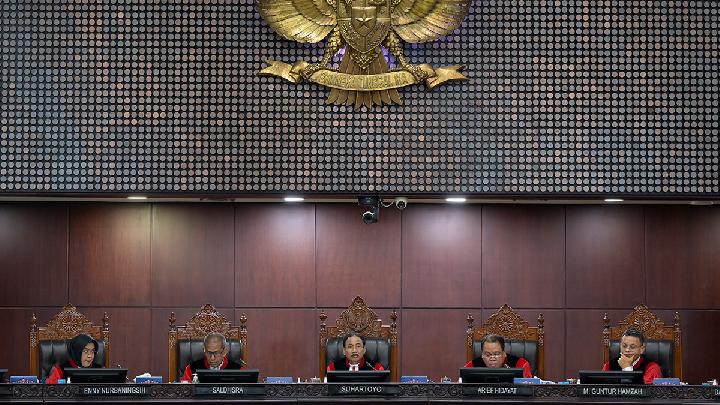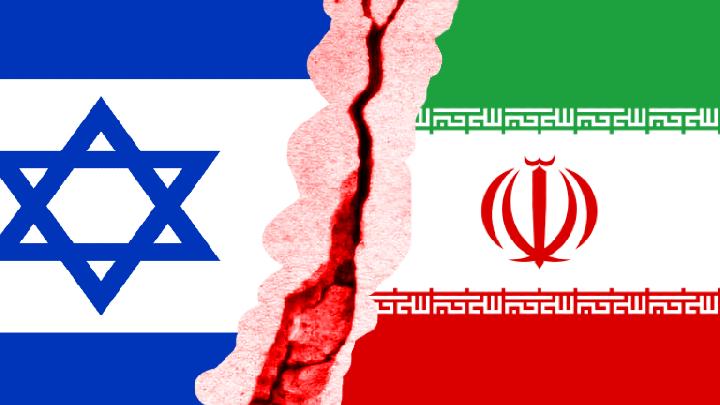TEMPO.CO, Jakarta - The Israeli economy has been significantly impacted by the recent 12-day conflict with Iran, incurring an estimated cost in the billions of dollars, according to various media reports and expert analyses.
The Financial Express reported that Israel spent approximately US$5 billion in the first week of its attack on Iran alone. The war's daily cost reached US$725 million, with the majority (US$593 million) allocated to offensive operations against Iran.
The Wall Street Journal indicated that Israel's air defense system incurred daily costs ranging from US$10 million to US$200 million.
According to the Israel-based Aaron Institute for Economic Policy, the total cost to Tel Aviv could exceed US$19.58 trillion if the war were to last a month.
Naser Abdelkarim, an assistant professor of finance at the American University in Palestine, told Anadolu Agency that the war has not only depleted the military budget but has also disrupted production activities, estimating total losses at US$20 billion.
He added that Israel's budget deficit is projected to increase by 6 percent, and compensation payments to affected residents will further strain the country's financial situation.
More than 10,000 Israelis were evacuated in the first week, and some 36,465 others have filed compensation claims, as reported by the Israel Tax Authority.
Abdelkarim explained that the Israeli government is considering three measures to address the deficit: cutting health and education spending, raising taxes, or securing new loans that could push the ratio of public debt to national income above 75 percent.
Israel's Finance Ministry has stated that the country's financial reserves are dwindling. The government is requesting an additional US$857 million for defense and proposing a US$200 million cut from health, education, and social services spending.
Israeli financial outlet Globes reported that most of this additional funding would be used to pay military personnel, as some 450,000 reservists were mobilized during the war.
Abdelkarim also noted that the shekel's exchange rate against the US dollar had initially dropped to as low as 3.7 but has since recovered to 3.5, partly due to a weakening dollar and market speculation.
Investor Panic Adds to Economic Pressure
Experts warn that if the conflict persists, Israel’s economic growth could decelerate, leading to rising unemployment and increased poverty.
Iranian attacks reportedly targeted critical infrastructure in Tel Aviv and Haifa. One such target, Israel’s largest oil refinery, Bazan, is incurring an estimated US$3 million (approximately Rp48.9 billion) in daily damages, according to the Financial Times.
Ben Gurion Airport was temporarily closed in response to the Iranian attack. The airport, which typically handles 300 flights and 35,000 passengers per day, was only partially open on Sunday for resident evacuations. This disruption is expected to contribute significantly to the overall economic damage.
The airport closures coincided with the suspension of flights by Israel’s national carrier, El Al, which diverted flights to avoid risks. Flights to Paris were forced to land in Cyprus, while flights to Bangkok were redirected to Rome. The operational costs of these disruptions alone are estimated at US$6 million.
Israel’s financial markets have also been impacted. An Iranian missile strike hit the Israel Diamond Exchange, a sector that accounts for about 8 percent of the country’s total exports. This attack sparked concerns on the Tel Aviv Stock Exchange, according to the Israel Diamond Institute.
Panicked investors engaged in heavy selling, causing market volatility and potentially disrupting economic stability in the short term.
The Ceasefire Attempt
U.S. President Donald Trump announced on Monday, June 23, 2025, that Israel and Iran had agreed to a “total and complete” ceasefire amidst rising tensions in the Middle East.
The ceasefire reportedly went into effect at 04:00 GMT Tuesday, with Trump urging both sides not to violate it.
However, on Tuesday morning, Israeli Defense Minister Israel Katz ordered a major strike on Iran, claiming that Iran had violated the agreement. Iran has denied this accusation and vowed to retaliate if attacked again.
On Monday, Iran launched missiles at the U.S. military’s Al Udeid Air Base in Qatar, following U.S. strikes on three Iranian nuclear sites on Sunday. These U.S. strikes further inflamed a conflict that has been raging since Israel attacked Iran on June 13, prompting Tehran to retaliate.
Editor's Choice: Russia Condemns U.S. Attack on Iran, Signals Backing for Tehran
Click here to get the latest news updates from Tempo on Google News































:strip_icc():format(jpeg)/kly-media-production/medias/4779768/original/056174500_1711004488-hands-holding-knife-fork-alarm-clock-plate-blue-background.jpg)
:strip_icc():format(jpeg)/kly-media-production/medias/3508689/original/070798000_1626139545-20210713-Elon-Musk-SolarCity-5.jpg)
:strip_icc():format(jpeg)/kly-media-production/medias/4769102/original/014075000_1710171937-20240311-Taraweh_Pertama_di_Istiqlal-ANG_1.jpg)
:strip_icc():format(jpeg)/kly-media-production/medias/4878826/original/064720000_1719661833-WhatsApp_Image_2024-06-28_at_23.09.07.jpeg)
:strip_icc():format(jpeg)/kly-media-production/medias/771429/original/006248600_1416892825-m2.jpg)
:strip_icc():format(jpeg)/kly-media-production/medias/4787912/original/016408900_1711630423-20240328-Penukaran_Uang-AFP_6.jpg)
:strip_icc():format(jpeg)/kly-media-production/medias/4669396/original/057272700_1701340063-male-traveler-montenegro-outdoors.jpg)
:strip_icc():format(jpeg)/kly-media-production/medias/1637589/original/042512800_1498996834-20170702-Senja-FF2.jpg)
:strip_icc():format(jpeg)/kly-media-production/medias/3055316/original/077027300_1582165451-BN-bsb-jame-asr-hassanil-m-2.jpg)
:strip_icc():format(jpeg)/kly-media-production/medias/4683631/original/073976400_1702380433-ilustrasi_melihat_nabi_dalam_mimpi.jpg)
:strip_icc():format(jpeg)/kly-media-production/medias/3022229/original/080968000_1579064783-HL.jpg)

:strip_icc():format(jpeg)/kly-media-production/medias/2393719/original/067759100_1540615529-pokemon-go01.jpg)
:strip_icc():format(jpeg)/kly-media-production/medias/5150517/original/099207500_1741076535-20250304-Banjir_Bekasi-AFP_3.jpg)

:strip_icc():format(jpeg)/kly-media-production/medias/1270659/original/036016300_1466509174-Banner.jpg)
:strip_icc():format(jpeg)/kly-media-production/medias/5114856/original/088700500_1738248362-Screenshot_2025-01-30_21.39.48.jpg)
:strip_icc():format(jpeg)/kly-media-production/medias/3430346/original/057356100_1618535827-coffee-cup-with-different-dried-fruits-nuts.jpg)
:strip_icc():format(jpeg)/kly-media-production/medias/5147273/original/095534700_1740968364-cek_fakta_petugas_haji.jpg)
:strip_icc():format(jpeg):watermark(kly-media-production/assets/images/watermarks/liputan6/watermark-color-landscape-new.png,1100,20,0)/kly-media-production/medias/4843119/original/038879500_1716728099-20240526185221_2R8A5728.JPG)